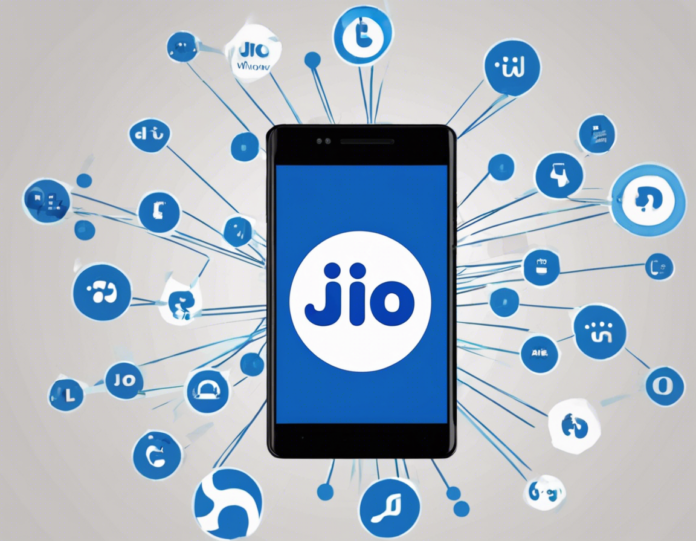Introduction
Having connectivity issues with your Jio network can be frustrating, especially in today’s world where we rely heavily on our phones for communication, work, and entertainment. Various factors can contribute to Jio network problems, which might leave you wondering where the issue lies and how to resolve it. This comprehensive guide will explore the common reasons behind Jio network problems and provide practical solutions to ensure a seamless network experience.
Understanding Jio Network
Jio, or Reliance Jio Infocomm Limited, is one of the leading telecommunications companies in India, offering a range of services including 4G and 5G data, voice calls, and digital services. With millions of subscribers across the country, Jio has significantly impacted the telecom industry by providing affordable and high-speed connectivity to users.
Common Reasons for Jio Network Problems
1. Poor Signal Strength:
One of the primary reasons for Jio network issues is poor signal strength. This can result from factors such as distance from the nearest tower, obstacles like buildings or terrain blocking the signal, or network congestion during peak hours.
2. Network Congestion:
During peak hours, when many users are simultaneously accessing the network, network congestion can occur, leading to slow data speeds, call drops, or difficulty in connecting to the network.
3. Software or Hardware Issues:
Sometimes, software glitches or hardware problems in your device can cause Jio network connectivity issues. Outdated software, incompatible settings, or faulty hardware components can impact your network experience.
4. SIM Card Issues:
Issues with your Jio SIM card, such as damage, improper insertion, or incorrect placement, can also lead to network problems. Ensuring that your SIM card is properly inserted and functional is essential for a seamless network connection.
5. Network Outages:
At times, Jio may experience network outages due to technical issues or maintenance work. These temporary disruptions can affect your connectivity until the network services are restored.
Solutions to Jio Network Problems
1. Check Signal Strength:
Start by checking the signal strength on your device. If the signal is weak, try moving to a different location to see if it improves. Avoid areas with obstacles that can block the signal, such as concrete buildings or underground spaces.
2. Restart Your Device:
A simple restart can often resolve network connectivity issues caused by temporary glitches in your device’s software. Turn off your device, wait for a few seconds, and then turn it back on to refresh the network connection.
3. Update Software:
Ensure that your device’s software is up to date. Software updates can contain bug fixes and network enhancements that improve network stability and performance. Check for any pending updates in your device settings.
4. Check Network Settings:
Verify that your network settings are properly configured for Jio. Ensure that mobile data is enabled, APN settings are correct, and data roaming is turned on if required. Incorrect settings can prevent your device from connecting to the network.
5. Reset Network Settings:
If you continue to experience network issues, reset your network settings to default. This can help resolve any configuration errors that may be causing connectivity problems. Note that this will erase saved Wi-Fi passwords and Bluetooth connections.
6. Contact Jio Customer Service:
If the problem persists, reach out to Jio customer service for assistance. They can provide technical support, troubleshooting steps, or information on any network disruptions in your area. You can contact Jio customer care through their helpline number, email, or online chat support.
Frequently Asked Questions (FAQs)
1. Why is my Jio network showing no signal?
Answer: No signal on your Jio network can be due to poor coverage in your area, network issues, or problems with your SIM card. Try moving to a different location, restarting your device, or reinserting the SIM card to resolve the issue.
2. How can I improve Jio network speed?
Answer: To improve Jio network speed, ensure that you are in an area with good signal strength, close background apps consuming data, switch to a 4G-enabled device, and consider upgrading to a higher data plan for faster speeds.
3. Why do I face call drops on my Jio network?
Answer: Call drops on Jio can occur due to poor signal strength, network congestion, software glitches, or incompatible settings on your device. Check your signal strength, update software, and ensure proper network settings to reduce call drops.
4. What should I do during a Jio network outage?
Answer: During a Jio network outage, stay updated on any service alerts issued by Jio. You can also try restarting your device, switching to Wi-Fi, or contacting Jio customer service for real-time updates on when the network will be restored.
5. How do I troubleshoot data connectivity issues on my Jio network?
Answer: To troubleshoot data connectivity issues on your Jio network, verify your data plan status, check APN settings, restart your device, disable and re-enable mobile data, and ensure that your device’s network mode is set to 4G/5G for optimal data speed and stability.
In conclusion, Jio network problems can arise due to various factors, from signal strength issues to network congestion and software glitches. By understanding the common reasons behind these problems and implementing the suggested solutions, you can enhance your network connectivity and enjoy a seamless Jio experience. If persistent issues occur, don’t hesitate to seek technical support from Jio to resolve the problem effectively.






